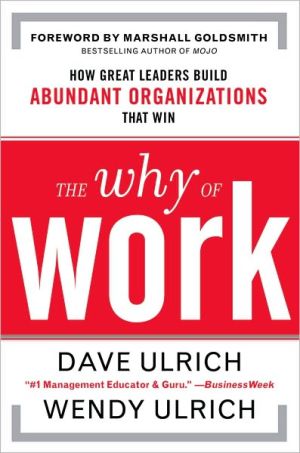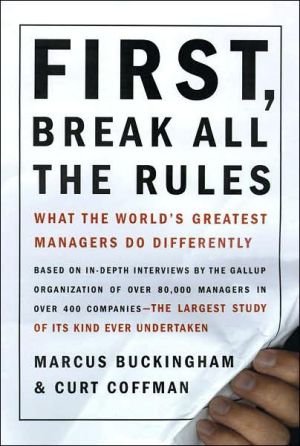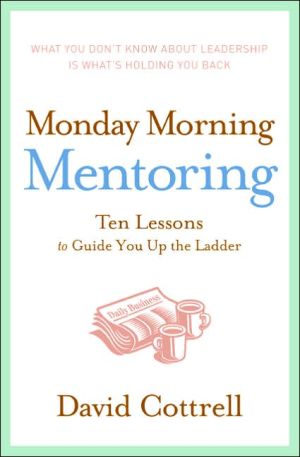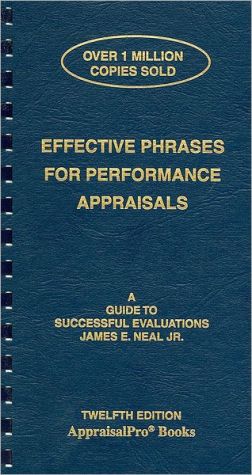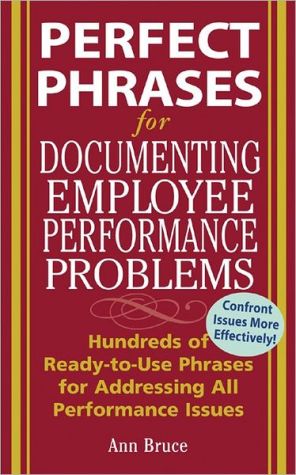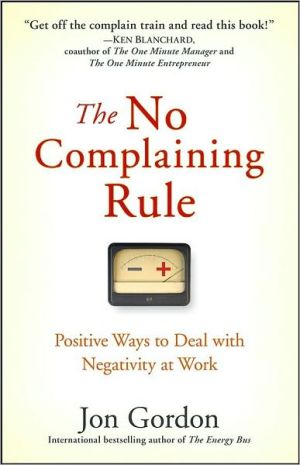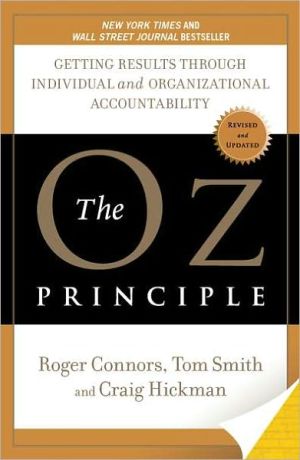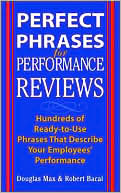The Why of Work: How Great Leaders Build Abundant Organizations That Win
THE NEW YORK TIMES, WALL STREET JOURNAL, AND USA TODAY BESTSELLER!\ Before you ask, "Why aren't my employees working harder?" . . . ask yourself, "Why are my employees working?"\ PRAISE FOR THE WHY OF WORK:\ “This book may well be held up as a game-changer in the world of work.” — Edge magazine/International Leadership and Management\ "Will help managers create a sense of purpose among employees, motivating them and inspiring them to break out to do more." — Publishers Weekly\ "Principled,...
Search in google:
Before you ask, "Why aren't my employees working harder? ". . . ask yourself, "Why are my employees working? "ADVANCE PRAISE FOR THE WHY OF WORK"Principled, timely, and engaging, The Why of Work teaches that building a culture of abundance and common purpose is essential to organizational success." — Stephen R. Covey, bestselling author of 7 Habits of Highly Effective People"Will have a major impact on how individuals shape their attitude to work, how organizations create abundant cultures, and how leaders turn personal meaning into public good." — Jigmi Y. Thinley, Prime Minister of Bhutan"The Why of Work shows a better, different way to build and lead organizations. It is an insightful guide to how leaders can infuse meaning into their organizations." — Jeffrey Pfeffer, Professor, Stanford Graduate School of Business and author of Power: Why Some People Have It—and Others Don't"This book brings the question 'why' to the place in which we spend most of our adult lives, giving us insightful tools to help make a meaningful difference in people’s lives." — Don Hall, Jr., president and CEO, Hallmark Cards, Inc."This is a must read for anyone who works, leads others at work, or works to build a supportive environment." — Beverly Kaye, founder/CEO, Career Systems International, and coauthor of Love 'Em or Lose 'Em: Getting Good People to Stay"Breaks new ground. . . . Going beyond competence and commitment to create abundance at work could be the next frontier for leaders." — Paul Humphries, EVP Human Resources, Flextronics"The Why of Work opens the door to significant employee engagement. The alignment between company values and those of customers and communities can indeed give employees a sense of purpose while delivering great results to customers!" — Paula S. Larson, Chief HR Officer, Invensys"Blackstone has proved that finding superior leaders produces superior results. Dave Ulrich has brought this thinking to a new level at Blackstone. Every private equity investor and senior manager must read this book." — James Quella, Senior Operating Partner, The Blackstone Group According to studies, we all work for the same thing—and it's not just money. It's meaning. Through our work, we seek a sense of purpose, contribution, connection, value, and hope. Digging down to the meaning of work taps our resilience in hard times and our passion in good times.That's the simple but profound premise behind this groundbreaking book by renowned management expert Dave Ulrich and psychologist Wendy Ulrich. They’ve talked to thousands of people—from rank-and-file workers to clients and customers to top-level executives—and synthesized major disciplines to identify the "why" behind our most successful experiences.Using the model of the "abundant organization, " they provide you with the "how" to create meaning and value in your own workplace. Learn how to:Ask the seven questions that drive abundanceUnderstand the needs of your customers and staffPersonalize the work to motivate your employeesBuild and grow your business in any economyBy following the Ulrichs' step-by-step guidelines, you will set off a chain reaction of positive and enduring effects. Employees who find meaning in their work are more competent, committed, and eager to contribute—and their contribution will result in increased customer commitment, which delivers a winning performance on the bottom line.The Why of Work includes targeted checklists, questionnaires, and other useful tools to help you turn aspirations into action. Using the proven principles of abundance, you can coordinate your needs with those of your employers, your employees, and your customers—and create a vision that resonates for years to come.When you understand why we work, you know how to succeed.Dave Ulrich, PH.D., is a professor of business at the Ross School of Business, University of Michigan, and cofounder of The RBL Group. He has written 23 books that cover topics in HR, leadership, and organization; he serves on the Board of Directors for Herman Miller and the Board of Trustees of Southern Virginia University; and he is a Fellow of the National Academy of Human Resources.Wendy Ulrich, Ph.D., M.B.A., has been a practicing psychologist for over 20 years. She is the founder of Sixteen Stones Center for Growth, which offers seminar-retreats on creating abundance and meaning, and she has authored two books on personal change.About the Authors Dave Ulrich's work passion has been how to build organization capabilities (systems, processes, cultures) that create value to multiple stakeholders, then to help leaders build intangible value in organizations. Working with over half of the Fortune 200 and with companies throughout the world, he provides seminars, writes books, and coaches leaders to build sustainable organizations by turning customer and investor expectations into personal and organizational actions. He helps leaders move beyond employee engagement to helping employees find real meaning from work. He is a professor of business at the Ross School of Business, University of Michigan and co-founder of The RBL Group. He has written 15 books covering topics in HR and Leadership; is currently on the Board of Directors for Herman Miller; is a Fellow in the National Academy of Human Resources; and is on the Board of Trustees of Southern Virginia University.Wendy Ulrich, Ph.D., has been a psychologist in private practice in Michigan for over twenty years. She is founder of Sixteen Stones Center for Growth in Utah, offering seminar-retreats on abundance. Their work with organizations and individuals intersects at helping people find meaning at work. Dave works to rethink and redefine how organizations work and Wendy works to help individuals rethink and redefine their own lives. At the same time, they are committed to the importance of the organization's responsibility to shareholders and investors as they respond to external conditions.
THE why OF Work\ HOW GREAT LEADERS BUILD ABUNDANT ORGANIZATIONS THAT WIN \ \ By DAVE ULRICH WENDY ULRICH \ McGraw-Hill\ Copyright © 2010 Dave Ulrich and Wendy Ulrich\ All right reserved.\ ISBN: 978-0-07-173935-1 \ \ \ Chapter One\ The Case for Meaning \ This morning, people all over the planet got out of bed and got ready for work. Some headed out before dawn in high-end cars to claim high-rise offices with high-tech computers and highbrow clients. Some headed out before dawn to walk barefoot, wares on their head, to claim a choice spot in the dirt near the entrance to the village market. Some wrestled with the muses to create artistic masterpieces or solve perplexing scientific problems. Others wrestled with boredom to complete their shifts at cash registers, call centers, or assembly lines. Some pitched their résumés in business suits, looking for good benefits and a sure path to comfortable retirement. Some made their pitch in ragged jeans on street corners, looking for someone to rent their muscles for at least the day.\ Some people in each one of these and many other categories by which we could define work found a sense of meaning, purpose, even abundance in their labor today. Others in each category found world-weary tedium, frustration, and despair.\ Which were you?\ Which were the people you lead?\ Viktor Frankl was a budding psychologist following in the footsteps of Freud when World War II erupted. Frankl survived three years in a Nazi concentration camp, but upon his liberation he found his family, home, and writings gone. Before the war Frankl had been developing a system of psychotherapy based on our need for meaning. Once he was incarcerated, his previous philosophical speculations about what helps people heal and cope were no longer just interesting cerebral playthings; they were tested in the fire of a dreadful and lengthy ordeal. Frankl's book Man's Search for Meaning, which has sold more than nine million copies, has become a classic. Against the backdrop of horrific adversity, his insistence on the possibility—even the necessity—of finding meaning in life becomes deeply credible. After all, adversity generally disrupts our sense of meaning and robs life of what previously gave it sense and purpose. In troubled times our search for meaning becomes both more difficult and more compelling. Frankl quotes the philosopher Friedrich Nietzsche: "He who has a why to live can bear with almost any how."\ He or she who has a why to work can bear with almost any how as well. Obviously, people find meaning in many settings—in the privacy of homes and the expanses of nature, in churches, ballparks, and community centers, in family and friendship circles. But work takes the lion's share of our time and energy. Most of us spend more time at work than at play, at family gatherings, at religious meetings, or at hobbies. The organizations in which we labor are thus a primary setting not only for accomplishing assignments but also for finding an abiding sense of meaning in life. Work is a universal setting in which to pursue our universal search for meaning.\ Meaning at Work\ This book is about both the why and the how of meaning at work.\ The why refers to the human search for meaning that finds its way into our offices and factories, a search that motivates, inspires, and defines us. The how gets us into the practicalities of how leaders facilitate that search personally and among their employees. We offer many specific tools and principles to help leaders put meaning to work not only to build personal meaning but also to help companies succeed in the marketplace of human endeavor.\ Thus the search for meaning adds value in two senses of the word. First, humans are meaning-making machines who find inherent value in making sense out of life. The meaning we make of an experience determines its impact on us and can turn disaster into opportunity, loss into hope, failure into learning, boredom into reflection. The meaning we create can make life feel rich and full regardless of our external circumstances or give us the courage to change our external circumstances. When we find meaning in our work, we find meaning in life.\ In addition to inherent value, meaning has market value. Meaningful work solves real problems, contributes real benefits, and thus adds real value to customers and investors. Employees who find meaning in their work are more satisfied, more engaged, and in turn more productive. They work harder, smarter, more passionately and creatively. They learn and adapt. They are more connected to customer needs. And they stick around. Leaders invest in meaning making not only because it is noble but also because it is profitable. Making sense can also make cents.\ The Abundant Organization\ In this book we refer to companies that are meaningful in both of these senses of the word as abundant organizations. An abundant organization is a work setting in which individuals coordinate their aspirations and actions to create meaning for themselves, value for stakeholders, and hope for humanity at large. An abundant organization is one that has enough and to spare of the things that matter most: creativity, hope, resilience, determination, resourcefulness, and leadership.\ Abundant organizations are profitable organizations, but rather than focusing only on assumptions of competition and scarcity, abundant organizations also focus on opportunity and synergy. Rather than accepting the fear-based breakdown of meaning in hard times, abundant organizations concentrate on bringing order, integrity, and purpose out of chaos and disintegration. Rather than restricting themselves to narrow, self-serving agendas, abundant organizations integrate a diversity of human needs, experiences, and timetables.\ In good times and in hard times, abundant organizations create meaning for both the employees who comprise them and the customers who keep them in business. Employees, customers, investors, and society benefit when employees find meaning at work and when companies give meaning to society. This logic applies to small and large organizations, to public agencies and private enterprises, to local storefronts and global conglomerates.\ The Market Value of Why\ Even if you are not one of those rare folks blessed with a gift for finding joy in the concentration camps of life, you intuitively know that you and your work team would be more productive, more satisfied, and more creative if work engaged not only your head and your hands but your heart and soul as well. What most of us know intuitively research confirms: when employees find meaning at work, they care enough about it to develop their competence; they work harder and are more productive; they stay longer and are more positive about their work experience. But there is more: when employees are more positive, customers generally respond in kind. Employee attitude is a key lead indicator of customer attitude, and satisfied customers help the businesses they patronize to survive and thrive. In brief:\ 1. Employees who find meaning at work are more competent, committed, and contributing.\ 2. In turn, employee competence, commitment, and sense of contribution lead to increased customer commitment.\ 3. In turn, customer commitment leads to better financial results for the company.\ Making meaning is an important cause and a lead indicator of long-term organizational success. So-called intangibles explain about 50 percent of the market value of publicly traded firms. Intangibles are the assets and capabilities of a company that cannot be touched or put on a balance sheet but give investors confidence in the future earnings of the company. Intangibles include nonthings such as leadership, talent, innovation, skill, and vision. Investors increasingly value these intangible organizational capabilities because they increase confidence in a company's future success.\ Employee competence, commitment, and passion or energy are among these intangible assets. Employees can be competent, even committed, but still lack passion for their work. Meaning reinforces employees' passion for work because it ties what they do to a greater good that also pays off in the marketplace. Passion for work is an intangible asset that has a direct impact on a firm's market value.\ Consider some additional data points on the value for both employees and customers of abundant organizations (exemplified here in organizations that employees like to work for, that investors admire, that invest in people, and that have positive work practices):\ * Over a 10-year period (1998 to 2008) "best companies to work for" have a 6.8 percent stock appreciation versus 1.0 percent for the average firm.\ * Over a seven-year period, the most-admired firms in Fortune's list of admired companies had doubled the market returns of competitors.\ * The probability of an initial public offering (IPO; a new company) succeeding goes from 60 to 79 percent when the new company invests in its people.\ * Sixty-one hospitals in the United Kingdom had a 7 percent decline in death rate when they invested in the well-being of their staff.\ * A one-standard-deviation increase in high-performance work practices yields $27,044 increase in sales per employee and $3,814 increase in profit per employee.\ * Only 13 percent of disengaged employees would recommend their company's products or services, compared with 78 percent of engaged employees.\ * Disengaged employees are 10 times more likely to say they will leave their company within a year.\ Franklin D. Roosevelt, U.S. president during the Great Depression of the 1930s, said, "We have always known that heedless self-interest was bad morals. We know now that it is bad economics." This is even more true in today's transparent and fluid cultures.\ Leaders as Meaning Makers\ So, how are abundant organizations created? This is the task of leadership.\ Ultimately the crisis of meaning is always a crisis of leadership. We hope to structure for leaders the private conversations and corporate decision-making criteria that shape abundant organizations. Abundance is not only a prerogative for leaders of rich people, smart people, prestigious people, successful people. Meaning is not only in short supply for poor people, mediocre people, struggling people, hurting people. Great leaders recognize the vital importance of abundance and meaning to everyone in their organization. Including themselves.\ The Great Place to Work Institute has conducted surveys of the best companies to work for in America since 1980. It now does work in more than 30 countries. Its surveys serve as a confirmation of the impact of The Why of Work on business results. A portfolio consisting of all of the publicly traded companies on the Best Companies to Work For list each year from 1998 to 2008 would have earned an annual return of 6.80 percent, compared to just 1.04 percent over the same period for the Standard & Poor's 500. Even purchasing stock in companies on the list in 1998 and holding it for the ensuing 10 years would have achieved a return of 4.15 percent, which is also much higher than the comparable indices.\ What do these companies do to maintain this outstanding performance? Of course they make money via excellent customer service and many other solid management practices or they would not survive. But in addition these high performers tap into the elusive quality of meaning in a variety of ways. For example, in the last 25 years, five companies have consistently been highly rated: Goldman Sachs, Nordstrom, Publix Super Markets, REI, and W. L. Gore & Associates. Goldman leaders build a culture of "smart people working together," or one of collaboration and synergy. Nordstrom has earned a reputation for exceptional customer service, hiring employees who delight in "anticipating and meeting customer needs." Publix Super Markets, founded in 1930, also has a strong customer focus, cultivating "servant leaders" who treat "associates" (not "employees") with respect and who become active in their communities. REI (a recreational equipment cooperative) trains leaders to build cooperation among employees and between employees and customers to accomplish its mission of "inspiring, educating, and outfitting for a lifetime of outdoor adventure and stewardship." Gore & Associates leaders encourage employees to pursue innovation by living by a set of guiding principles of "freedom, fairness, commitment, and waterline." In each of these exceptional companies, leaders endeavor to turn the meaning employees find in their work into sustained organizational abundance. Though each company has a unique take on how to make this connection, all develop leaders who help employees find meaning at work that contributes to organizational success.\ The creation of meaning applies to countries as well as companies. Bhutan is a small country located in the Himalaya Mountains in South Asia. Although most countries use the Gross National Product index to measure national success, in 1972 King Jigme Singye Wangchuck of Bhutan instituted a Gross National Happiness (GNH) index to assess his country's progress. The king instituted social and economic policies to help Bhutan citizens find meaning and well-being in their lives. The GNH index includes measures of the progress of sustainable development, preservation of cultural values, conservation of the natural environment, and establishment of good governance. Even with low gross domestic product per capita, Bhutan citizens are among the happiest in the world, with over 50 percent of citizens reporting they are "very happy." Their lifespan is in the top 10 percent of nations worldwide. Bhutan became the world's newest democracy in 2008 as the king established parliamentary elections, Jigmi Thinley, the first Bhutan prime minister, has said, "material enrichment and consumerist ethics must not lead to spiritual impoverishment. True happiness and well-being lies in sustainable education, health, and living environments which include caring and sharing relationships where extended families serve each other."\ In companies or in countries, leaders have the task of creating a direction for their organizations that is charged with meaning—that resonates with not only the minds and hands but the hearts of those they lead. In this book, we go beyond cases to synthesize and integrate theory, research, and experience from multiple disciplines to propose seven meaning drivers successful leaders have used to shape meaning. An individual leader might be predisposed to focus on one or two elements of an abundant organization, as shown in the preceding examples. We cull these and many other examples to offer leaders a menu of questions and activities to help them create meaning for employees and turn it into sustained organizational abundance.\ Recessions of Meaning\ In either good or bad markets, without bottom-line results organizations will simply fold, leaving even able workers twiddling their thumbs. Organizations in any economy must also make sense to the people who compose them. When our organizations enact our highest values and embody our best aspirations, they inspire our best efforts, and nothing short of our best efforts will keep us afloat when storms are raging and the ship has sprung a leak—or when fair winds lull us into lethargy and hubris.\ In the 2009 recession, many governments bailed out companies with toxic assets. Bailing out sinking ships is a bad analogy for what makes organizations seaworthy, however. Before setting out for open seas, we must not only bail out the water but fix the leaks. Organization leaks occur not only when leaders fail to provide great products and solid returns, but also when they waver on ethical principles, isolate themselves from the consequences of their choices, abdicate responsibilities for strategy and innovation, or drop the ball of timely action. Organization leaks also occur when employees put in their time but don't invest their hearts, when they abandon creativity or integrity, or when they lose sight of the impact of their work. Organizations that survive in recessions and thrive during recovery will have leaders who consistently offer employees both economic well-being and an abundance of meaning and purpose.\ In both lean and prosperous times, an organization's values are tested and forged, setting the stage for the future. Meaning is shaped or dissipated. Loyalties are won or lost. Talent and skill are honed or abandoned. Creativity and problem-solving skill are developed or undermined. And future sustainability is either ensured or threatened.\ We need abundant organizations in deficit-dominated contexts that challenge our existing sense of meaning and growth-dominated contexts that give rise to expansion.\ (Continues...)\ \ \ \ \ Excerpted from THE why OF Work by DAVE ULRICH WENDY ULRICH Copyright © 2010 by Dave Ulrich and Wendy Ulrich. Excerpted by permission of McGraw-Hill. All rights reserved. No part of this excerpt may be reproduced or reprinted without permission in writing from the publisher.\ Excerpts are provided by Dial-A-Book Inc. solely for the personal use of visitors to this web site. \ \
ForewordPrefaceChapter 1 The Case for Meaning 1Chapter 2 The Making of Abundance 27Chapter 3 What Am I Known For? (Identity) 53Chapter 4 Where Am I Going? (Purpose and Motivation) 81Chapter 5 Whom Do I Travel With? (Relationships and Teams [Th]at Work) 103Chapter 6 How Do I Build a Positive Work Environment? (Effective Work Culture or Setting) 125Chapter 7 What Challenges Interest Me? (Personalized Contributions) 157Chapter 8 How Do I Respond to Disposability and Change? (Growth, Learning, and Resilience) 185Chapter 9 What Delights Me? (Civility and Happiness) 219Chapter 10 Implications for Executives, Human Resources, and Individuals 243Appendix: Leadership Challenges and Actions as Meaning Makers 265Notes 269Index 277
